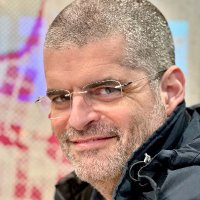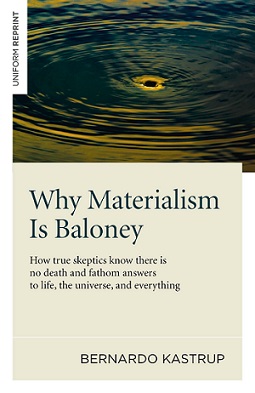|
Word Gems
exploring self-realization, sacred personhood, and full humanity
A Course In Miracles
return to "The Course" main-page:
Editor’s note: The Course uses "authorship" almost as a synonym for "separation." The ego tends to believe that it is not one of God's creations and that it created itself. This self-authorship promotes a fear of aloneness, of isolation in the universe.
... you believe you are the author of yourself and project your delusion onto others... This belief is very frightening to them.
The problem everyone must decide is the fundamental question of authorship. All fear comes ultimately from ... the denial of Authorship.
The ego's attempt to create itself is discussed in one of my favorite books, Dr. Ernest Becker's Pulitzer Prize winning work, "The Denial Of Death." (See more discussion on the "Fear" page.)

Dr. Becker borrows a term from Spinoza, the Latin phrase, “causa sui.” It means “to cause” or “to make oneself.” It’s an attempt, says Dr. Becker, “to become father of oneself.”
In one sense, causa sui is a natural part of growing up. The little child needs to psychologically separate itself from mommy and become its own person. We need this individualization in order to become whole, sane, autonomous adults.
However, crafted by the ego, causa sui can lead to much dysfunction. For many people, when they remove themselves from mommy’s orbit, they promptly find a new authority figure to identify with – some “strong personage” as a form of security and safety in a hostile world.

This untoward dynamic becomes the essence of cultism, in all its forms: religious, political, corporate, academic, and others. See the article on “Cultism.”
a right way and a wrong way
Notice how the Course speaks of this as a “fundamental question,” with lack of resolution here engendering “fear.” And the fearful will seek for solace in cultism.
We’re not talking about the sensational Jim-Jones kind. I would say that 90% or more of the world’s population has embroiled itself in some form of cultism, some form of identification with a “strong father figure.” The fearful inner child demands this.

None of these true believers would see themselves thus burdened. Most of them would count themselves as free, in charge, able, with it; and yet, if we look a little deeper – and with many of them, we don’t have to look so very deep – we’ll find them identifying with something which they deem to be stronger than themselves.
The Course offers instruction in "mind training” as it seeks to lead us away from the ego enhancements and attachments, from external authorities promising us safety and security -- because there is nothing more powerful in the entire universe than the sacred Self, linked to God.
And yet, it must be said, there is a right way and a wrong way of doing this. “Authorship” is a valid concept and something that each healthy mind must negotiate in a proper way. We are to become individualized and autonomous person – indeed, it’s pretty much the whole reason why we came to this trouble planet.
However, as we individuate in our own causa-sui project, we are not to lose mindfulness that, in God, “we live and move and have our being.” We were created by God, we did not create ourselves in any ultimate sense. We are not to deny the divine Authorship; and yet, ironically, it is our destiny to become independent, volitional, autonomous, mature sons and daughters of Mother-Father God.
Getting the right balance here issues as primary objective of the Course’s “mind training.”
|
the purpose of the brain is to filter out, from universal consciousness, anything not correlating with the body’s perspective; in this ‘step-down transformer’ process, separate egos, with separate personal identities, emerge

Dr. Bernardo Kastrup, PhD philosophy, PhD computer science, for many years worked at CERN, the large hadron collider in Geneva.
“… the function of the brain is to localize consciousness, pinning it to the space-time reference point implied by the physical body. In doing so, the brain modulates conscious perception in accordance with the perspective of the body.
a brain that filters implies the existence of unbound mind, a universal consciousness
"When not subject to this localization and modulation mechanism, mind is unbound: it entails consciousness of all there is across space, time, and perhaps beyond. Therefore, by localizing mind, the brain also ‘filters out’ of consciousness anything that is not correlated with the body’s perspective… like a radio receiver selecting [a particular station], among the variety [with] all other stations being filtered out and never reaching the consciousness of the listener…
"[T]he filter hypothesis implies that consciousness, in its unfiltered state, is unbound. As such, consciousness must be fundamentally unitary and non-individualized, for separateness and individualization entail boundaries.
Editor’s note: Father Benson from the afterlife speaks of a being, formerly mortal, five billion years old, so advanced as to enjoy awareness of all life-forms in the universe; in this, we see the future of the ‘unfiltered’ mind. Read More on the “500 hundred tape-recorded messages from the other side” page.
the filtering brain creates the illusion of separateness, of disconnected personal egos
"The emergence of multiple, separate and different conscious perspectives or egos, is a consequence of the filtering and localization process: different egos, entailing different perspectives on space-time, retain awareness of different subsets of all potential subjective experiences, the rest being filtered out. It is the difference across subsets that give each ego its idiosyncratic vantage point, personal history, and sense of personal identity.
Editor’s note: A brain designed to filter, and reduce to a trickle, experience does not substantively support a theory of reincarnation which exalts much experience. We do not come to this planet to gain experience, as such, but to individualize, to transform one’s tiny sub-set of universal consciousness into a personal ego. With this, we become ready for what comes next in the afterlife, even if we are not yet “good” persons, which can be accomplished later, but only after one becomes a person in one’s own right. Read More on this need for individualization.
"The subjective experiences that are filtered out become the so-called ‘unconscious’ mind of the respective ego. Since each ego allows in only an infinitesimally small part of all potential experiences … the ‘unconscious’ minds of different egos will differ only minimally… As such, the filter hypothesis, unlike materialism, predicts the existence of a ‘collective unconscious’; a shared repository of potential experiences that far transcends mere genetic predispositions of a species…
the likely origin of the mystical experience
"[A]nd most importantly, the filter hypothesis predicts that one can have experiences that do not correlate with one’s brain states. Since here the brain is seen merely as a mechanism for filtering out experience … when this [filtering] mechanism is interfered with so as to be partially or temporarily deactivated, one’s subjective experience could delocalize, expand beyond the body in time and space, and perhaps even beyond time and space [giving rise to what is called the mystical experience]…”

READ MORE of Dr. Kastrup's work on the “quantum mechanics” page
|
|
Editor's last word:
When we offer our grateful loyalty to God for having been given the gift of life, we are not to identify with God as the typical cult member does in reference to any of their “strong father figures.”
Instead, we are to always maintain our sense of sacred individualism, “the buck does stop with us,” we are not to violate the "absolute sovereignty of the individual" principle, we are not to surrender our responsibility to exercise the dominion granted to us, and mandated for us, by God.
|
more than drinking the koolaid
The long reach of cultism encompasses much more than crackpot churches. The root idea of cult offers the sense of "cut." This core concept of "cut" leads us to images of refinement and refashioning and, by extension, development, control, pattern, order, and system.
Cultism as systemization finds a ready home in religion and philosophy which seek to regulate and redistill the patterning and ordering of ideas. However, in a larger sense, the spirit of cultism extends to every facet of society. We find it scheming and sedulously at work in politics, academia, family, corporations, entertainment, science, artistry – anywhere power might be gained by capturing credulous and fear-based minds.
See the “cultism” page for a full discussion.

|
|
|



